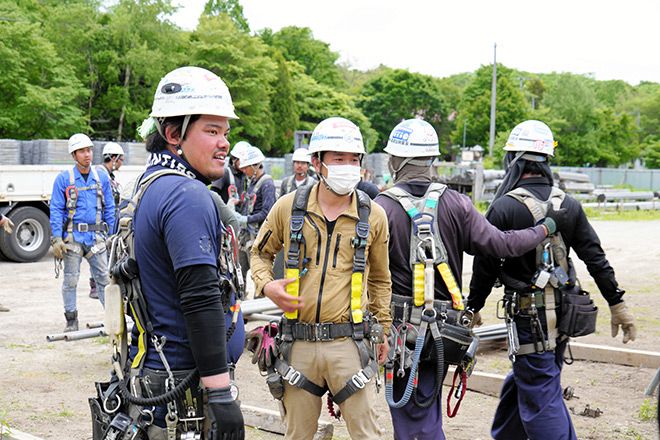CHITOSE, Hokkaido—Reflecting on the disappearance of two Vietnamese workers immediately after joining his company nine years ago, the Taki Kensetsu Kogyo Co. president accepts the blame.
Yuichi Taki said, “We were lacking in compassion.”
The primary reason for their quick departure was believed to be the higher wages offered in the Tokyo metropolitan area. But for Taki and his company, it was a learning experience.
The company has since worked to create a work environment more friendly to foreigners.
“Countries have different histories, ways of thinking and social norms,” said Taki, 40. “In some cultures, patting someone on the head can be considered an insult. Careful attention is essential.”
Today, Taki Kensetsu Kogyo is thriving as a “multinational” construction company, with foreign nationals making up 34 of its 70-employee workforce.
Foreign employees hail from 13 countries, including Laos, Sri Lanka, Indonesia, Russia and the Philippines. The company also plans to soon hire workers from Kenya and Uzbekistan.
The hiring comes as the construction industry is facing a severe labor shortage. Without relying on foreign workers, companies cannot survive.
Many have gone bankrupt after failing to secure enough workers to take on new projects.
At Taki Kensetsu Kogyo, foreign employees build facilities for Rapidus Corp., which plans to domestically produce next-generation semiconductors, and for the Hokkaido Shinkansen Line, among other projects.
Carrying heavy materials and tools, they assemble temporary scaffolding that reaches great heights.
They work in teams of four to five. A key is to group those from different countries so that they must communicate in Japanese to improve their language skills.
Phan Cong Tien from Vietnam has been with the company for eight years. With his earnings, the 29-year-old built a house back in his home country.
In the beginning, Tien was blamed for being unable to work as expected or communicate in Japanese, sometimes shedding tears of frustration. He had no one he could turn to for help.
Now, Tien gladly takes on the role of looking after new foreign employees. His dream is to continue to work in Japan and build a happy family.
Taki believes that a foreigner-friendly work environment also benefits Japanese employees.
“Hiring foreigners requires extra effort,” he said. “But the positive impact on the company far outweighs that. Japanese hiring has also increased, and our business performance is strong.”
To ensure that foreign employees have someone to consult with when facing life or work issues, the company has assigned a dedicated Japanese staff member to support them.
Two types of manuals have been prepared in four languages: English, Spanish, Khmer and Nepali.
One is a guide to daily life in Japan, complete with illustrations and photographs, explaining essentials such as cleaning, garbage disposal, bathing customs and what to do when feeling sick.
The other is a work manual outlining basic procedures and rules on construction sites.
Taki even plans to open a Japanese language school and a multicultural restaurant in Chitose.
“Chitose is home to New Chitose Airport and now the new Rapidus plant,” he said. “I want to transform this city into a place where foreigners feel glad they came.”
He believes that the biggest barrier is the stereotypes and prejudices held by individual Japanese.
Young children sometimes say they are frightened when passing by foreign employees.
Taki said they fear foreigners because they do not know about them. He believes that the solution lies in deepening interactions between Japanese and foreign residents.


AloJapan.com